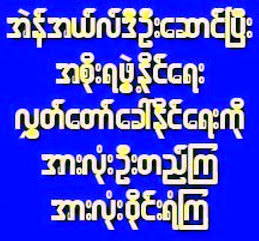
| By GRANT PECK / AP WRITER | Wednesday, October 8, 2008 |
BANGKOK — Thailand suffered its worst political violence in more than 16 years as police battled protesters who besieged the Parliament in their struggle to change the country's system of democracy. At least one person was killed and more than 400 people were injured.
The army moved into the streets of the capital, Bangkok, while most of the protesters eventually left the area around Parliament and regrouped on the grounds of the prime minister's office, which they have occupied since August 26.
| Riot policemen fire tear gas towards anti-government demonstrators protesting outside Parliament in Bangkok on October 7. (Photo: Reuters) |
A September 2006 coup ousted Thaksin, but a military-appointed interim government proved incompetent and scared away foreign investors.
Thaksin's political allies were restored to power by a December 2007 election, serving only to deepen the split between his rural majority supporters and urban-based opponents, who have made it difficult for the government to function. The problems stayed at a boil when Somchai Wongsawat, Thaksin's brother-in-law, became prime minister.
Earlier, according to Thai media, he climbed over a fence to get past the crowds and escape from Parliament.
The protesters' rage over what they see as an effort to reinstall Thaksin by stealth leads some to suspect they are pushing to force another coup to oust the government.
"It is increasingly apparent that the alliance is provoking confrontation so that the military would intervene," said Charnvit Kasetsiri, a historian and a former rector of Bangkok's Thammasat University: "They are confusing anarchy and democracy and I don't think a coup can be ruled out at this point. It seems that they want to drag it to that end, one way or the other."
But Army Commander Gen Anupong Paochinda, speaking to reporters Tuesday night, said: "The military will not stage a coup. A coup would not do any good to the country. It won't accomplish anything. It is not hard to stage a coup. But making a country function after staging one is."
The prime minister rebuffed the protesters' demands to step down. "I came in to do my job, so I will not quit working," Somchai told reporters.
| An injured anti-government protester, center, is carried by her comrades after police dispersed thousands of protesters. (Photo: AP) |
The alliance claims Thailand's electoral system is susceptible to vote-buying, and that the rural majority, the Thaksin camp's power base, is not sophisticated enough to cast ballots responsibly.
It advocates abandoning one-person, one-vote to allow some lawmakers to be chosen by professions and social groups, but has not explained how such a system would work and be free and fair.
The violence was the worst since 1992, when the army killed dozens of pro-democracy demonstrators seeking the ouster of a military-backed government.
The protesters had surrounded the squat, modern Parliament buildings Monday night with barbed wire and tire barricades. The first burst of violence came at 6 a.m. Tuesday when police cleared the street, allowing the prime minister to enter and deliver a policy statement.
Another erupted in the late afternoon with authorities firing countless volleys of tear gas to clear a path for lawmakers to leave.
About a mile (1.6 kilometers) away from the fighting, an unidentified person was killed when a Jeep Cherokee exploded. Police said they suspected a bomb, but gave no details.
Witnesses reported hearing gunshots throughout the day, though who was firing them could not be determined.
| 07 October 2008 |
| မ်က္ရည္ယိုဗုံးျဖင့္ ပစ္ခတ္ၿဖိဳခြဲမႈေၾကာင့္ ထြက္ေျပးေနၾကေသာ ထုိင္းအစုိးရ ဆန္႔က်င္ေရး ဆႏၵျပသမားမ်ား။ ေအာက္တုိဘာ ၇၊ ၂၀၀၈။ |
အညီေတာင္းခံလို႔ ကူညီဖို႔အတြက္သာ
ျဖစ္တယ္၊ လက္နက္မကိုင္ထားၾကပါဘူးလုိ႔
စစ္တပ္ေျပာခြင့္ရပုဂၢဳိလ္က ရွင္းလင္းေျပာဆုိ
ပါတယ္။
ထုိင္းႏုိင္ငံ ဘန္ေကာက္ၿမိဳ႕မွာ အစိုးရဆန္႔က်င္
ေရး ဆႏၵျပသမားမ်ားနဲ႔ လုံၿခဳံေရးတပ္ဖြဲ႕မ်ား
ပဋိပကၡ ျဖစ္ပြားေနစဥ္ မသကၤာဖြယ္ ကားဗုံး
ေပါက္ကြဲလို႔ အမ်ဳိးသမီးတေယာက္ ေသဆုံး
သြားပါတယ္။ ဒီဗုံးေပါက္ကြဲမႈနဲ႔ ပါလီမန္ကုိ
၀ုိင္းၿပီး ဆႏၵျပေနၾကတဲ့ ေထာင္ေပါင္းမ်ားစြာေသာ ဆႏၵျပသမားမ်ား ပတ္သက္ျခင္း
ရွိမရွိ မသိရေသးဘူးလုိ႔ အစုိးရတာ၀န္ခံမ်ားက ေျပာဆုိၾကပါတယ္။
ပါလီမန္လႊတ္ေတာ္ထဲ ၀န္ႀကီးခ်ဳပ္ ဆြန္ခ်ဳိင္း ေ၀ါင္ဆာ၀ပ္ (Somchai Wongsawat)
မိန္႔ခြန္းေျပာရာသို႔ လႊတ္ေတာ္ကုိယ္စားလွယ္မ်ား မတက္ႏုိင္ေအာင္ အစိုးရဆန္႔က်င္
ေရး ဆႏၵျပသမားမ်ားက လႊတ္ေတာ္ကို ၀ုိင္းရံပိတ္ဆို႔ထားတာျဖစ္လို႔ ရဲက ထပ္တလဲလဲ
မ်က္ရည္ယိုဗုံးမ်ားသုံးကာ လူစုခြဲရပါတယ္။
၀န္ႀကီးခ်ဳပ္အျဖစ္က ဖယ္ရွားခံလုိက္ရတဲ့ သက္ဆင္ ရွင္နာ၀ပ္ (Thaksin Shinawatra)
နဲ႔ နီးစပ္တဲ့ ဒီေရြးေကာက္တင္ေျမႇာက္ခံအစုိးရ ဆင္းေပးဖုိ႔ လူေထာင္ေပါင္းမ်ားစြာတို႔က
ဘန္ေကာက္ၿမိဳ႕ရွိ အစိုးရ႐ုံး၀င္းကုိ သိမ္းပုိက္ၿပီး ဆႏၵျပေနတာ တလေက်ာ္သြားပါၿပီ။
ဒီေန႔ပဋိပကၡဟာ ဒီကာလအတြင္း အဆုိး၀ါးဆုံးျဖစ္တယ္လို႔ ဆုိပါတယ္။
ဘူးလို႔ ျငင္းဆန္ေၾကာင္း သတင္းရရွိပါတယ္။







No comments:
Post a Comment